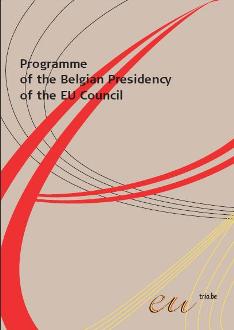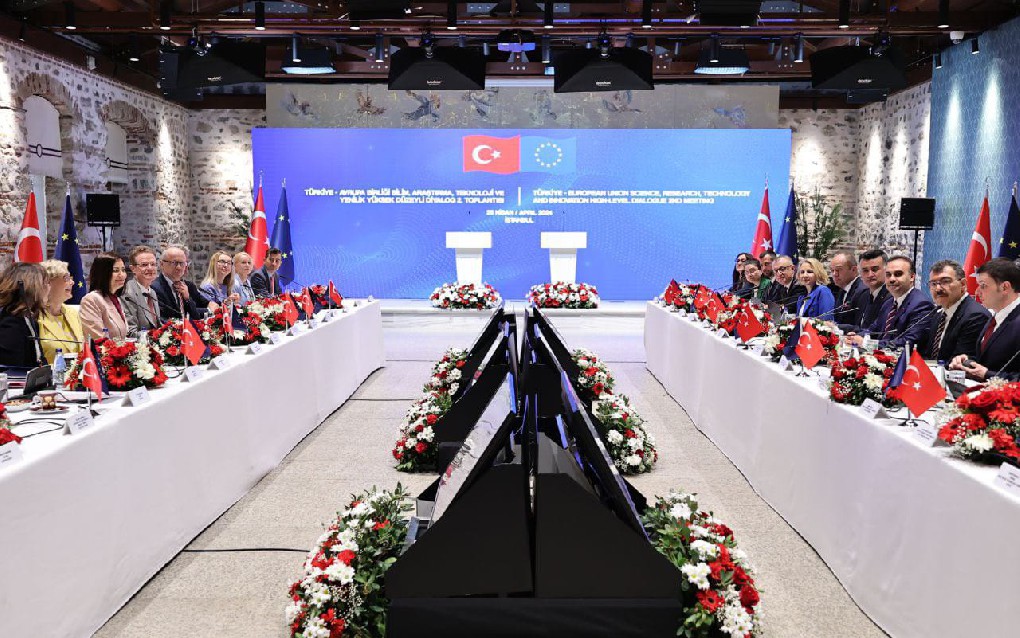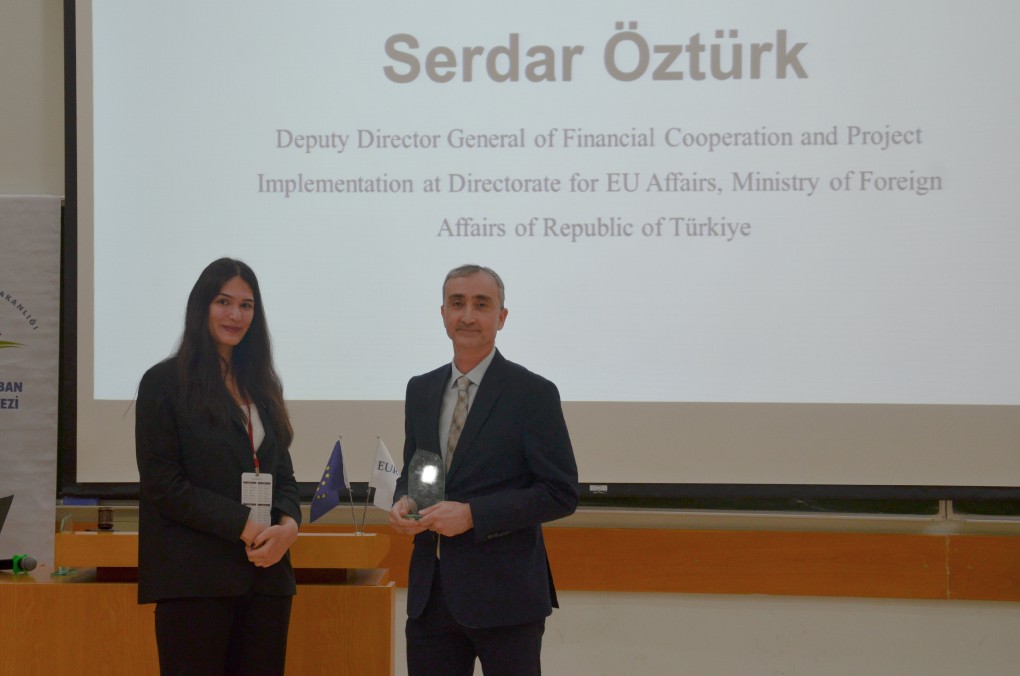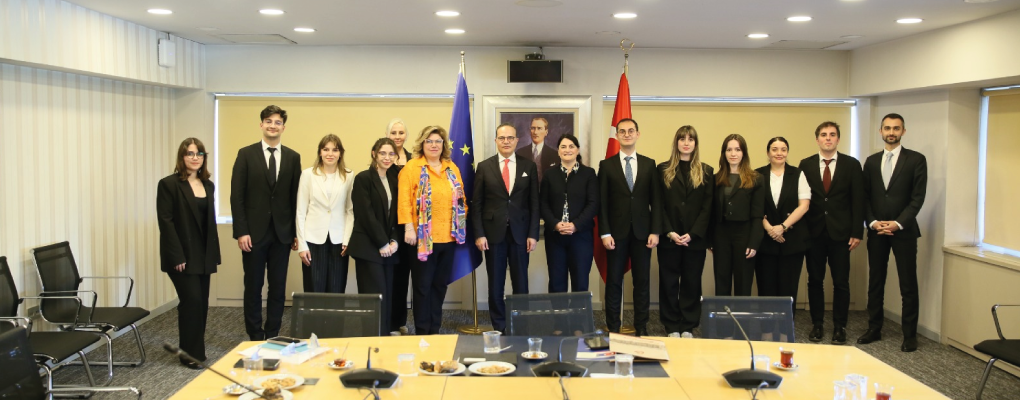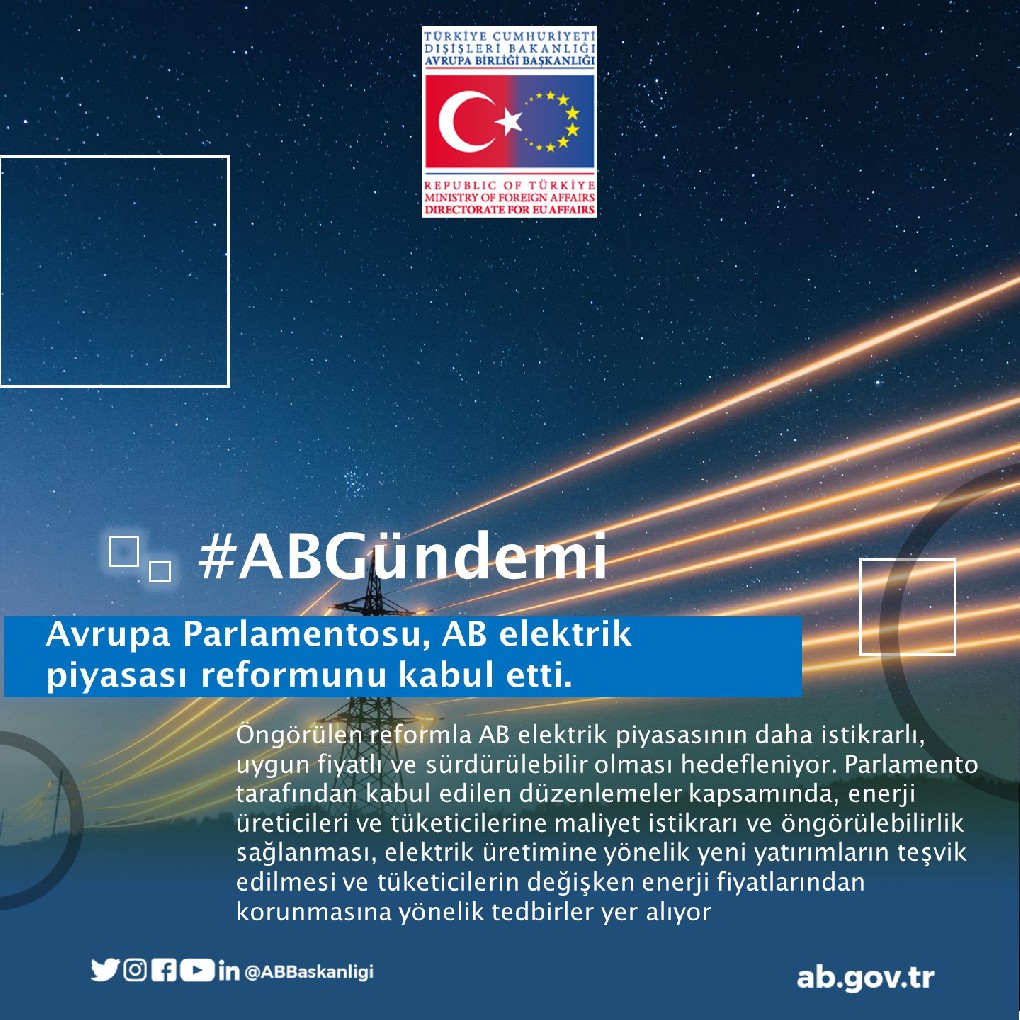- HOMEWelcome
- DIRECTORATE FOR EU AFFAIRSStructure
- E.U.Structure
- TÜRKİYE-EU RELATIONS
- History of Türkiye- EU Relations
- Main Documents
- Agreements
- Protocols
- Accession Partnership Documents
- National Programmes for the Adoption of the Acquis (NPAA)
- Türkiye Reports Prepared by the European Commission
- Enlargement Strategy Papers
- Türkiye’s National Action Plan for the EU Accession
- Türkiye’s National Action Plan for the EU Accession (2021-2023)
- Association Council Decisions
- Documents on Türkiye-EU Summits
- Institutional Structure
- Customs Union
- Türkiye- EU High Level Dialogue Meetings
- DATASources
- MEDIANews
- CONTACTContact Us
Belgium Took Over the Presidency of the Council of the European Union from Spain
Belgium Took Over the Presidency of the Council of the European Union from Spain
Belgium took over the six-month rotating presidency of the Council of the European Union from Spain on June 1, 2010. The finalized version of the Belgian presidency's work programme was officially approved on July 16, 2010. Although the priorities set by the programme are in essence in line with those declared by the Spain's presidency in the first quarter of 2010, Belgium, during its presidency, will focus especially on socio-economic matters. In this context, combating the economic and financial crisis, reinforcing the social dimension of the EU, implementing the Stockholm Program Action Plan in matters of justice and home affairs, environment, climate and enlargement are defined as a set of five general priorities by the Belgian Presidency.
Combating the Financial and Economic Crisis
First priority of the Belgian Presidency is combating economic and financial crisis. Structural measures to combat with economic and financial crisis can be classified as short term, medium term and long term. In the short run, Greece‘s economic and financial situation is going to be closely monitored. In the medium run, financial sector reform and strengthening of budgetary discipline are the main goals. And in the long run, growth of the knowledge economy within the framework of Europe 2020 Strategy and the increase in employment opportunities will be as of major importance. Europe 2020 Strategy is a document accepted by the Commission on 3 March 2010 and it sets targets for the EU's future. Moreover, five economic objectives determined in this respect are;
• 75% labour participation in the ages between 20-64,
• 3% of GDP spending to R&D,
• school drop-out prevention to less than 10%,
• social inclusion/poverty reduction,
• implementation of EU Climate and Energy Package known as ‘20-20-20 Targets' which includes a reduction in EU greenhouse gas emissions of at least 20% below 1990 levels, rise in the renewable sources' share to 20% of EU energy consumption and 20% increase in the energy efficiency.
Reinforcing the Social Dimension of the EU
Belgian Presidency's second priority concerns the reinforcement of EU's social dimension. Under this topic, three important points can be highlighted. While the first one covers the efforts to be directed for the 2010 European Year for Combating Poverty and Social Exclusion that aims to raise awareness of the society and pay attention to needs of poor people, the second one is further development of the Renewed Social Agenda of the Commission (2008) which was formed to respond the technological changes, globalization and ageing population. Finally, the third point includes studies about social dimension inside Europe 2020 Strategy.
Implementation of Stockholm Programme
In the field of Justice and Home Affairs, the Belgian Presidency will continue with the effective implementation of the Stockholm Programme (2010-2014), which defines the framework for EU police and customs cooperation, rescue services, criminal and civil law cooperation, asylum, migration and visa policy. Every five years, the EU draws up a strategy, or road map, for dealing with matters in the justice and home affairs sector. Within this context, Stockholm Programme that is adopted during the Swedish Presidency in 2009 will be the steering document in the area of justice and home affairs. The creation of a common European asylum policy founded on the respect of fundamental rights with high standards of international protection remains an absolute priority in this area. In the field of justice, it is mentioned that mutual recognition of judicial decisions and judicial cooperation will be the central theme for the Belgian Presidency's Programme.
The fight against terrorism, organized crime, illegal immigration and human trafficking, in particular, are among some other priorities in the field of internal affairs. Additionally, particular attention will be paid to the external dimension of these subjects. Within this framework, the strengthening of Frontex, the European Agency for the Management of Operational Cooperation at the External Borders, is another priority that takes place on the agenda. Though responsibility for the control of external borders lies with the Member States, Frontex strengthens border security by ensuring the coordination of Member States' actions in the implementation of Community measures relating to the management of the external borders.
Environment and Climate Change
Another priority emphasized in the Belgian Presidency Programme regards the environment and the climate change. In this context, the priority will be the implementation of the Copenhagen Treaty, with a view to 16th United Nations Climate Change Conference, scheduled to be held in Cancun from 29 November to 10 December 2010. It is stated that throughout the Belgian Presidency, measures must be adopted to set firm European climate change targets, including the directive on CO² emissions limits for light commercial vehicles and the "decarbonisation" of the transport sector. Threat of climate change on ecosystems and biological diversity is apparent. Protecting ecosystems and biological diversity is of vital importance for existence of societies and economies. Thus United Nations has declared 2010 to be the International Year of Biodiversity. EU's participation in the 10th Conference on Biological Diversity to be held in Nagoya in October 2010 constitutes one of the main priorities.
Enlargement
The issue of enlargement which is a close concern for Türkiye represents another dimension of the Belgian Presidency. As announced by the Belgian Presidency's Programme, the aim of Belgium during its presidency would be to continue ongoing negotiations with candidate countries. Within that context, conclusion of accession talks with Croatia in the first half of 2011 will remain high on the agenda. Furthermore, according to the Presidency's Programme, Belgium will seek to take steps forward with Iceland and encourage the reaching of a consensus within the Council to begin accession talks with Macedonia. Iceland applied for EU membership in July 2009 and on June 17, 2010 the European Council granted a candidacy status to Iceland by the Council decision no EUCO 13/10 and agreed to open negotiation process with Iceland on its possible membership of the EU by concluding that Iceland meets the political criteria set by the Copenhagen European Council in 1993. Moreover, since 2005, Macedonia has been recognized as a candidate country for EU membership. However, the ongoing "name dispute" between Greece and Macedonia is a big obstacle to Macedonia's EU membership. Belgian presidency is willing to make an effort to find an agreement over the name issue to start negotiation talks with Macedonia. Finally, Belgium intends to support Türkiye to continue its reforms in order to fully comply with Copenhagen criteria and open new chapters on negotiations.
In conclusion, in times of institutional changes due to the entry into force of the Treaty of Lisbon on December 1, 2009 and economic and financial crisis that EU faces, it is estimated that Belgium will conduct a pragmatic presidency. In this context, Belgium highlights the fact that in addition to the above mentioned priorities, the further implementation of the Treaty of Lisbon will be also as of crucial importance during its presidency.

